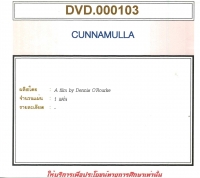O'Rourke takes his camera to small-town Cunnamulla at the end of the railway line in the state of Queensland, Australia. As Neredah, the chain-smoking wife of taxi driver Arthur, keeps telling us, life at the "end of the line" feels just like that, a dead-end. Teenage girls turn early to sex and alcohol as their only forms of entertainment, whilst young Aboriginal men such as Paul turn to theft in a predictable cycle of poverty and hopelessness. The older generation gossips, gambles, and listens to country music.As a small-town veteran who has succeeded in his profession, O'Rourke walks the line between insider and outsider, opening a window on the lives of the ordinary people who seem so willing to share their stories with him. The problem with this film, however, is that there seems to be not much to tell past a repetitive set of complaints about life in the town, and O'Rourke, with his hands-off approach, doesn't do much to push through the surface of the story. For instance, the film makes only a perfunctory effort to portray the Aboriginal peoples of the town, largely through the representative testimony of Paul, who's likely heading to jail for his petty crime. A few snippets of other Aboriginal peoples provide little in the way of balance to Paul's monologue or popular stereotypes, and cast little insight on the segregated life of the town. Likewise, the lives of Herb, the eccentric scrap merchant, Cara the teenage dropout, or Marto the town DJ and rebel, remain opaque to the viewer, unilluminated by any context to the lopsided interviews; how did these people end up in Cunnamulla? Who makes up the rest of their family? O'Rourke largely edits out his own questions that elicit the talking-head monologues that make up most of the film, creating an impression of realism when in fact what we are given is a snapshot of lives cut off from history-either their own, or the region's. O'Rourke sketches the impression of a cast of small-town characters and caricatures, from the disaffected youth to the dog-catcher-cum-mortician. The hints we get of the larger stories that might connect these people to the movements of history-one Aboriginal woman's numb performance of a Christian hymn, a throwaway reference to landowning farmers who don't employ the locals-are never followed up. Instead, we get life in Small Town Anywhere, the limited outcome of a film project that seems, in the end, like a missed opportunity.



